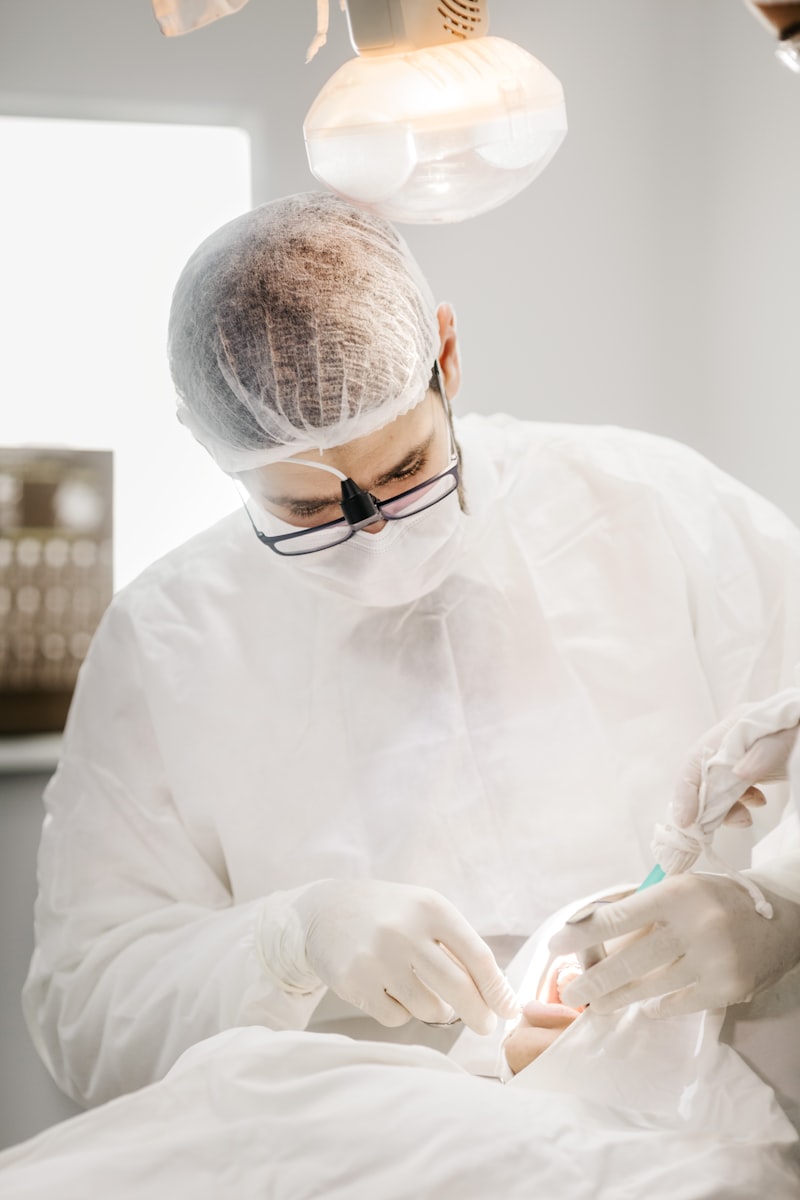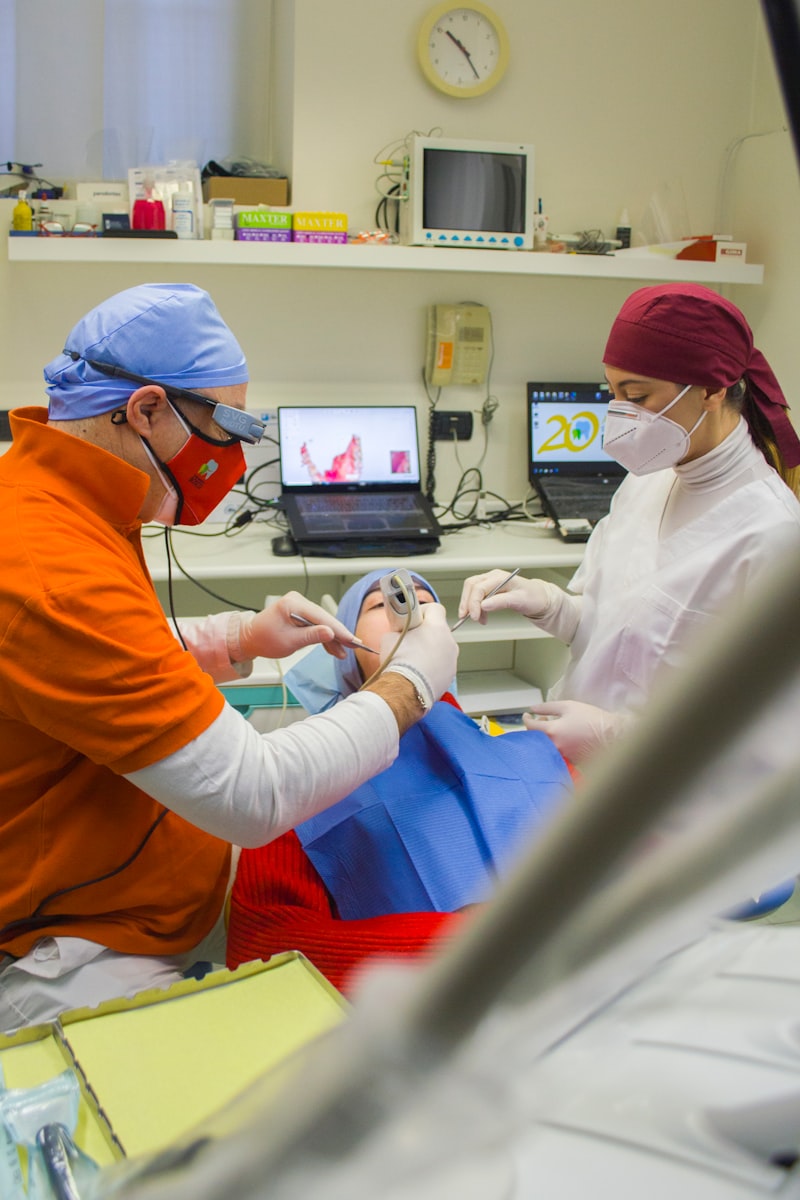Prevention is key when it comes to dental plaque. Regular brushing and flossing are your first line of defense. Brushing twice a day with a fluoride toothpaste helps remove plaque buildup from the surfaces of your teeth. Flossing at least once a day is equally important as it removes plaque from between teeth and along the gumline, where your toothbrush may not reach effectively.
Maintaining a balanced diet can also contribute to preventing plaque formation. Sugary and starchy foods can fuel plaque-causing bacteria, so limiting your intake of these foods can help reduce plaque buildup. Drinking plenty of water throughout the day helps rinse away food particles and bacteria that can lead to plaque formation.
Regular dental check-ups and professional cleanings are essential for preventing and treating dental plaque. Your dentist or dental hygienist can remove hardened plaque (tartar) that cannot be removed by brushing and flossing alone. They can also assess your oral health and provide personalized recommendations for maintaining a plaque-free smile.
When it comes to treating existing plaque, professional dental cleaning is again crucial. Scaling and root planing are common procedures used to remove plaque and tartar from below the gumline and smooth out rough spots on tooth roots where bacteria can accumulate.
Incorporating antibacterial mouthwash into your oral hygiene routine can also help reduce plaque-causing bacteria. Look for mouthwashes that contain fluoride to strengthen tooth enamel and further protect against plaque buildup.
By adopting these preventive measures and seeking timely professional dental care, you can effectively prevent and treat dental plaque, ensuring a healthier smile for years to come.
Your Complete Guide to Fighting Dental Plaque: Effective Prevention and Treatment
Dental plaque is a sneaky adversary, quietly building up on our teeth and gums, potentially leading to various oral health issues if left unchecked. But fear not! With the right approach, you can effectively combat this common dental concern. Let’s dive into your complete guide to fighting dental plaque, covering both prevention and treatment strategies that are crucial for maintaining a healthy smile.
Imagine dental plaque as a sticky, colorless film that forms on your teeth daily. It’s composed of bacteria and food particles, thriving in the crevices and spaces between teeth and gums. If not removed regularly, plaque hardens into tartar, which can only be removed by a dentist or dental hygienist.
Prevention is key to keeping plaque at bay. Start with a diligent oral hygiene routine: brush your teeth at least twice a day with a fluoride toothpaste and use dental floss or interdental brushes to clean between teeth. This helps remove plaque before it hardens. Don’t forget to brush your tongue, where bacteria can also reside.
Regular dental check-ups and professional cleanings are vital. Your dentist can spot early signs of plaque buildup and tartar formation, providing timely intervention. They may also recommend dental sealants or fluoride treatments to strengthen your teeth against plaque.
If plaque has already hardened into tartar, it’s time to seek professional help. A dentist or dental hygienist will perform a thorough cleaning procedure called scaling to remove tartar from your teeth and below the gumline. This process not only cleans but also helps prevent gum disease and tooth decay.
For those prone to plaque buildup, antimicrobial mouth rinses or prescription toothpaste may be prescribed to reduce bacteria in the mouth. However, these should complement, not replace, regular brushing and flossing.

Consistency is key in the fight against dental plaque. By adopting good oral hygiene practices, attending regular dental visits, and being mindful of your diet, you can significantly reduce plaque buildup and maintain a healthy smile for years to come.
Remember, preventing dental plaque is far easier than treating its consequences. With these strategies in place, you’re well-equipped to tackle dental plaque head-on and preserve your oral health effectively.
Top Dentists Share Their Secrets: Best Practices for Dental Plaque Prevention
Let’s start with the basics: what exactly is dental plaque? Plaque is a sticky, colorless film of bacteria that constantly forms on your teeth. It’s the main culprit behind tooth decay and gum disease if left unchecked. So, how do you combat this sneaky intruder?
First up, brushing your teeth regularly is non-negotiable. Dentists unanimously recommend brushing at least twice a day, using fluoride toothpaste. This helps remove plaque from the tooth surfaces before it can harden into tartar, which is much harder to remove.
But brushing alone isn’t enough. Enter dental floss – your teeth’s best friend. Flossing once a day helps clean those hard-to-reach places between your teeth and along the gumline where plaque loves to hide. Think of it as a mini-scrubber for your teeth, ensuring no plaque gets left behind.
Now, let’s talk about diet. What you eat impacts your oral health more than you might realize. Sugary and starchy foods fuel the bacteria in plaque, leading to more acid production that attacks tooth enamel. Opt for a balanced diet rich in fruits, vegetables, and plenty of water to keep your mouth hydrated and your teeth happy.
Regular dental check-ups are also crucial. Even the most diligent brushers and flossers can miss spots or develop early signs of dental issues. Dentists recommend scheduling cleanings every six months to remove any hardened plaque and tartar buildup professionally.
Lastly, consider using an antimicrobial mouthwash as part of your oral hygiene routine. Mouthwashes can help reduce plaque formation and gum disease, especially ones containing fluoride or antibacterial agents.
Beyond Brushing: Innovative Ways to Combat Dental Plaque Build-Up
Are you tired of the endless battle against dental plaque? Beyond regular brushing and flossing, there are innovative strategies that can help you maintain a healthy smile. Dental plaque, a sticky film of bacteria that forms on teeth, can lead to cavities and gum disease if not properly managed. Fortunately, there are effective ways to combat plaque build-up beyond traditional oral hygiene routines.
One effective method is incorporating mouthwash into your daily routine. A good quality mouthwash can reach areas in your mouth that a toothbrush may miss, helping to reduce plaque and freshen breath simultaneously. Look for mouthwashes with antibacterial properties to maximize their plaque-fighting benefits.
Another innovative approach is using an electric toothbrush. These toothbrushes are designed to oscillate and rotate, effectively removing plaque more efficiently than manual brushing. Their built-in timers also ensure that you brush for the recommended two minutes, covering all areas of your mouth thoroughly.
For those who enjoy a snack, consider adding crunchy fruits and vegetables to your diet. Foods like apples, carrots, and celery act as natural abrasives, gently scrubbing away plaque as you chew. They also stimulate saliva production, which helps neutralize acids and remineralize enamel.
Furthermore, staying hydrated is crucial for maintaining oral health. Water washes away food particles and bacteria that can contribute to plaque formation. It also helps stimulate saliva production, which plays a key role in protecting teeth from decay.
By incorporating these innovative strategies into your daily routine, you can go beyond brushing to effectively combat dental plaque build-up. Remember, a proactive approach to oral hygiene not only enhances your smile but also contributes to your overall well-being.
The Ultimate Dental Plaque Survival Guide: Expert Tips and Tricks
Dental plaque is a common dental issue that can lead to more serious problems if not properly managed. Understanding how to effectively prevent and manage plaque buildup is essential for maintaining good oral health. Here’s a comprehensive guide to help you tackle dental plaque like a pro.
Firstly, what exactly is dental plaque? It’s a sticky, colorless film of bacteria that constantly forms on your teeth. When sugars and starches in food interact with these bacteria, they produce acids that attack tooth enamel, leading to cavities and gum disease.
To combat plaque effectively, start with proper brushing technique. Use a soft-bristled toothbrush and fluoride toothpaste. Brush gently in circular motions at a 45-degree angle to the gums. Pay special attention to the gum line, back teeth, and areas around fillings or crowns.

Flossing is equally crucial as it removes plaque and food particles from between teeth and under the gumline where your toothbrush can’t reach. Incorporate daily flossing into your routine to maintain optimal oral hygiene.
Consider using an antimicrobial mouthwash to reduce plaque-causing bacteria further. Swish it around your mouth for 30 seconds to one minute after brushing and flossing. Look for mouthwashes containing fluoride for added protection against cavities.
Your diet plays a significant role in plaque control too. Limit sugary and starchy foods that fuel plaque formation. Instead, opt for crunchy fruits and vegetables like apples, carrots, and celery, which can help clean teeth naturally by increasing saliva production.
Regular dental check-ups and professional cleanings are non-negotiable. Your dentist can detect early signs of plaque buildup and remove hardened plaque (tartar) that can’t be removed by brushing alone. Aim for biannual visits to keep your oral health in check.
By adopting a proactive approach to oral hygiene, you can effectively manage dental plaque and safeguard your smile. Implement these expert tips and tricks into your daily routine to keep plaque at bay and maintain optimal oral health for years to come.
Frequently Asked Questions
What are the consequences of untreated dental plaque?
Learn about the consequences of untreated dental plaque, including gum disease, tooth decay, and potential tooth loss. Discover how regular dental hygiene and professional cleanings can prevent these issues and maintain oral health.
How can I effectively prevent dental plaque?
Learn effective strategies to prevent dental plaque buildup with practical tips on oral hygiene, including regular brushing and flossing techniques, using mouthwash, maintaining a balanced diet low in sugary foods, and scheduling regular dental cleanings.
What are the best ways to remove dental plaque at home?
Discover effective methods for removing dental plaque at home with our concise FAQ guide. Learn practical tips and techniques endorsed by dental professionals to maintain oral hygiene and prevent plaque buildup.
What are the main causes of dental plaque?
Discover the primary reasons behind dental plaque formation with this concise FAQ. Learn about the key causes contributing to plaque buildup, including poor oral hygiene, bacteria accumulation, sugary diets, and inadequate dental care routines.
Why is professional dental cleaning important in plaque prevention?
Professional dental cleaning is crucial for preventing plaque buildup because it removes hardened tartar that regular brushing and flossing can’t reach. This reduces the risk of gum disease, cavities, and other oral health issues.



